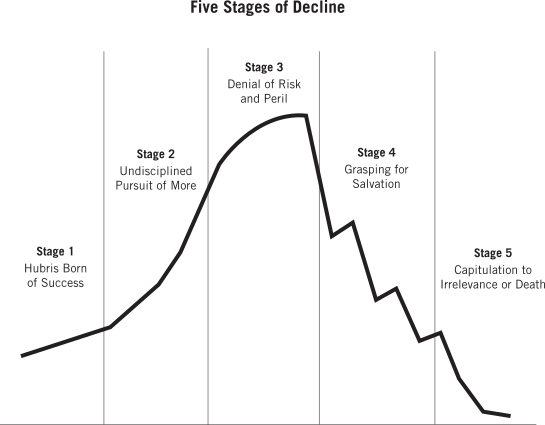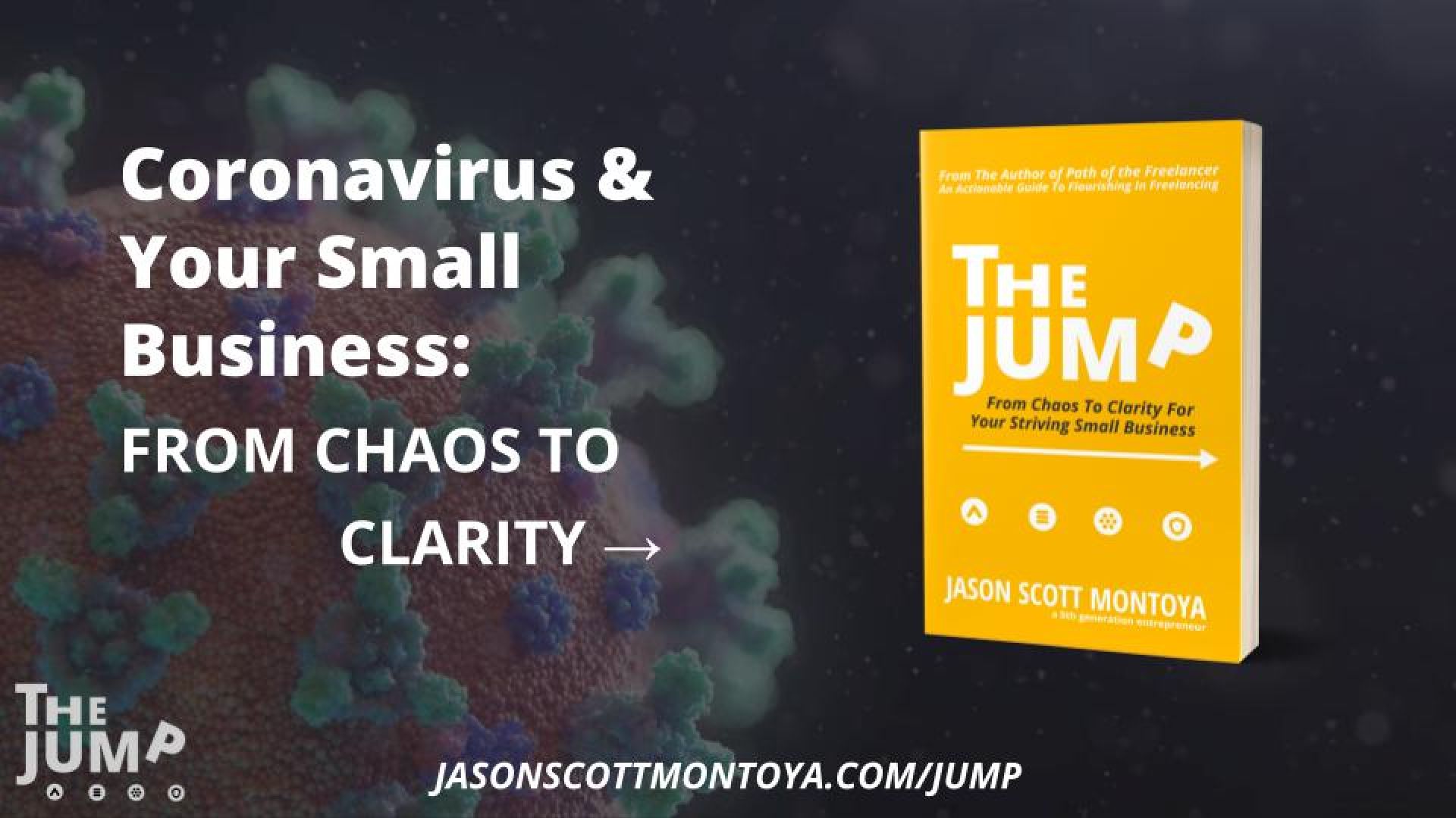
'How The Mighty Fall' Is The Best Business Book From Jim Collins That Nobody Talks About
I want to talk about a little book by Jim Collins.
This is his best book that nobody talks about.
It's called How the Mighty Fall: And Why Some Companies Never Give In.
Perhaps the reason it's not his most famous book, or most people don't even know that it exists, is because it can be a little sad and dark to talk about failure and the end of something. But many powerful insights in here actually enable you to see your decline happening, whether it's in your organization or even at a higher level, like in a society.
The insights in this will help you see the signs so that as you're declining, you can change course. One of the things that Jim talks about in this book is that, pretty much at any point before a company dies, you can turn things around. The way to recovery is about going back to the source of what made that organization, that group, or that entity, successful in the first place.

This book talks about five stages of decline. We're going to talk through these five stages.

You can see the graph there. We go up and then we fall.
The five stages are:
- Hubris Born of Success
- Undisciplined Pursuit of More
- Denial of Risk and Peril
- Grasping for Salvation
- Capitulation to Irrelevance or Death
Stage 1: Hubris Born of Success
"Great enterprises can become insulated by success. Accumulated momentum can carry an enterprise forward for a while, even if its leaders make poor decisions or lose discipline. Stage one kicks in when people become arrogant, regarding success as an entitlement, and they lose sight of the true underlying factors that created success in the first place.
When the rhetoric of success — "We're successful because we do these specific things" — replaces penetrating understanding and insight — "We're successful because we understand why we do these specific things and under what conditions they would no longer work" — decline will very likely follow. Luck and chance play a role in many successful outcomes. Those who fail to acknowledge the role luck may have played in their success and thereby overestimate their own merit and capabilities have succumbed to hubris." - Jim Collins
We can all be successful, but it doesn't mean we were the sole ingredient in making it successful. We have to have enough humility to recognize that maybe the success was something that we were doing, but maybe we were simply a beneficiary of it.
Stage 2: Undisciplined Pursuit of More
"Hubris from stage one — "We're so great we can do anything" — leads straight into stage two: the undisciplined pursuit of more. More scale, more growth, more acclaim, more of whatever those in power see as success. Companies in stage two stray from the disciplined creativity that led them to greatness in the first place, making undisciplined leaps into areas where they cannot be great, or growing faster than they can achieve with excellence, or both.
When an organization grows beyond its ability to fill its key seats with the right people, it has set itself up to fall. Although complacency and resistance to change remain dangerous to any successful enterprise, overreaching better captures how the mighty fall." - Jim Collins
Interestingly, complacency is a danger, but it's not as dangerous as overreaching.
Stage 3: Denial of Risk and Peril
"As companies move into stage three, internal warning signs begin to mount. Yet external results remain strong enough to explain away disturbing data or to suggest that the difficulties are temporary, cyclical, or not that bad, and that nothing is fundamentally wrong.
In stage three, leaders discount negative data, amplify positive data, and put a positive spin on ambiguous data. Those in power start to blame external factors for setbacks rather than accept responsibility. Note that the vigorous, fact-based dialogue that characterizes high-performance teams dwindles or disappears altogether.
When those in power begin to imperil the enterprise by taking outsize risks and acting in ways that deny the consequences of those risks, they are heading straight for stage four." - Jim Collins
Stage 4: Grasping for Salvation
"The cumulative peril and/or risks gone bad of stage three assert themselves, throwing the enterprise into a sharp decline visible to all. The critical question is, "How does its leadership respond?" by lurching for a quick salvation or by getting back to the disciplines that brought about greatness in the first place. Those who grasp for salvation have fallen into stage four.
Common saviors include a charismatic visionary leader, a bold but untested strategy, a radical transformation, a dramatic cultural revolution, a hoped-for blockbuster product, a game-changing acquisition, or any number of other "silver bullet" solutions.
Initial results from taking dramatic action may appear positive, but they do not last." - Jim Collins
Does any of this sound familiar? Sounds like our country right now. America is in this stage, grasping for salvation. Particularly, my political party, the Republican Party, has embraced that charismatic savior who is simply perpetuating this decline and exploiting others on the way down.
Stage 5: Capitulation to Irrelevance or Death
"The longer a company remains in stage four, repeatedly grasping for silver bullets, the more likely it is to spiral downward.
In stage five, accumulated setbacks and expensive false starts erode financial strength and individual spirit to such an extent that leaders abandon all hope of building a great future. In some cases, their leaders just sell out. In other cases, the institution atrophies into utter insignificance. In the most extreme cases, the enterprise simply dies out." - Jim Collins
Conclusion
That's a little glimpse into How the Mighty Fall and the five stages of decline by Jim Collins. It's a short read; the pages are small, and it's only 123 pages. You can read this in probably an hour or two, and there will be so much in here that will change your life, your business, your freelancing, and your small business that it'll be well worth the few bucks you pay for the book. So, go check this out: How the Mighty Fall by Jim Collins.











![Mediocrity Is The Sign Of Chronic Inconsistency [for irunurun]](/templates/yootheme/cache/a3/performance-sign-irunurun-a38447a7.jpeg)


